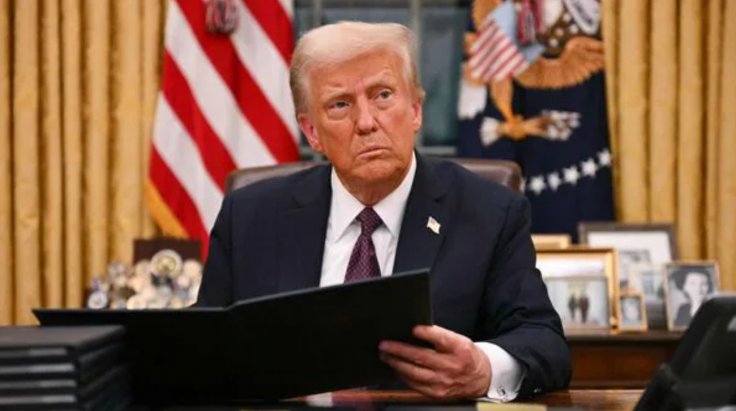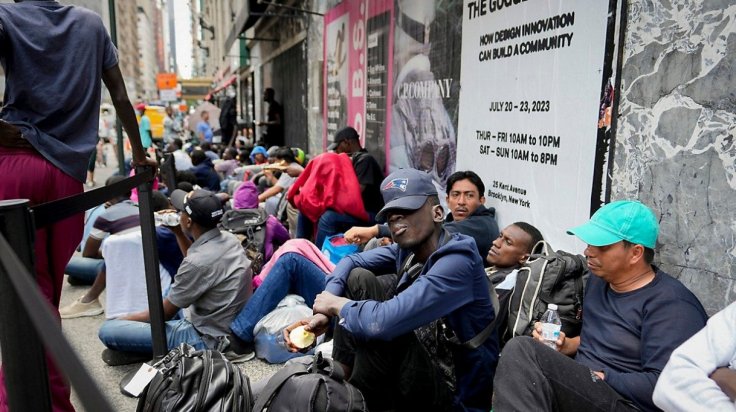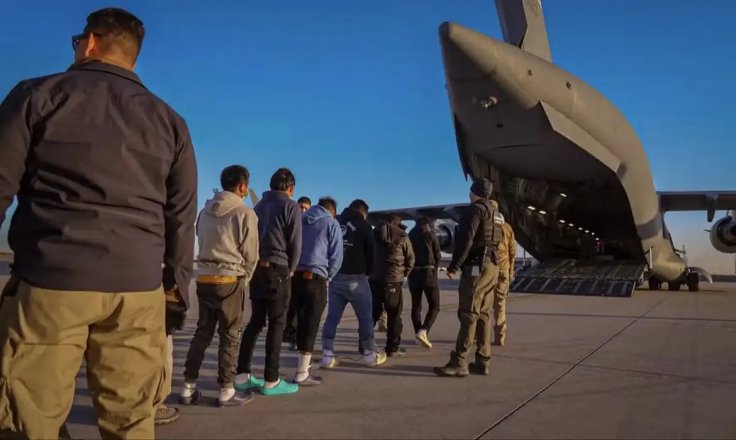The Supreme Court on Saturday temporarily blocked Donald Trump from deporting any Venezuelan gangster held in northern Texas under an 18th-century wartime law. In a brief order, the court asked the Trump administration to immediately stop the deportation of Venezuelans held at the Bluebonnet Detention Center "until further order of this court."
Conservative Justices Clarence Thomas and Samuel Alito dissented from the decision. The high court acted on an emergency request from the American Civil Liberties Union (ACLU), which argued that immigration officials appeared to be trying to resume removal of Venezuelans under the Alien Enemies Act of 1798. The decision comes as a major blow to the Trump administration.
Major Blow to Trump

Earlier in April, the court had ordered that deportations could be carried on only if those facing removal were given a chance to present their case in court and allowed "a reasonable time" to challenge their deportation orders.
"We are deeply relieved that the Court has temporarily blocked the removals. These individuals were in imminent danger of spending the rest of their lives in a brutal Salvadoran prison without ever having had any due process," ACLU lawyer Lee Gelernt said.

One of the judges said that the case involved valid issues, but he could not grant an order.
The ACLU had earlier filed a lawsuit to stop the deportation of two Venezuelans held at the Bluebonnet facility and sought an order to stop the removal of any migrants in the area under the Alien Enemies Act.
In the emergency court filing on early Friday, the ACLU expressed concern that immigration officials were now accusing other Venezuelan men held at the facility of being members of the notorious Tren de Aragua gang, which could lead to their removal from the United States under Trump's use of the Act.

The Alien Enemies Act has only been used thrice in the history of America, with the most recent during World War II to detain Japanese-American civilians in internment camps.
The Trump administration argued that the Act allowed them to swiftly deport migrants they believed were gang members, regardless of their legal immigration status.
Dirty Politics Playing Role
After the Supreme Court issued a unanimous ruling on April 9, federal judges in Colorado, New York, and southern Texas soon ordered a halt on deportations of detainees under the Act until the government provided a legal process for them to present their cases in court.

However, no such order had been issued in the jurisdiction covering the Bluebonnet Detention Center, which is just 24 miles north of Abilene in northern Texas.
District Judge James Wesley Hendrix, who was appointed by Trump, recently declined to stop the removal of the two Venezuelan men named in the ACLU's lawsuit, citing sworn statements from Immigration and Customs Enforcement (ICE) that those would not be deported immediately.
He also hesitated to issue a broader order barring the removal of all Venezuelans in the region under the Act, saying that removals had not officially begun.
However, in Friday's filing, the ACLU included sworn statements from three different immigration attorneys who said their clients at Bluebonnet had received papers that indicate they are members of the Tren de Aragua gang and could be deported by Saturday.









